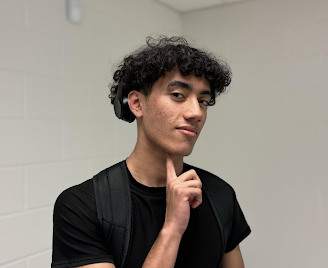‘Orange is the New Black’ takes the Netflix world by storm
The show with no boundaries, “Orange is the New Black” has been dominating news headlines and blogs everywhere. But is it a head turner because of its racy lesbian scenes or because of its success in bringing to light those controversial topics that society has been too timid to discuss?
A Netflix original series, “Orange is the New Black” is not afraid to go the distance. Based on Piper Kerman’s memoir, the show follows her year in a woman’s prison. Kerman’s character in the series, Piper Chapman (played by Taylor Schilling) enjoys a carefree and comfortable life until her drug smuggling ex-girlfriend Alex Vause (played by Laura Prepon) names her as an accomplice to a decade-old crime. The vibrant storyline unfolds as Piper encounters each new prisoner in Litchfield Penitentiary, including the culprit for her imprisonment, Alex. “OITNB” reveals each character’s backstory through flashbacks, allowing the audience to empathize with or even understand the choices of the individuals.
Jenji Kohan, the producer, fearlessly writes a script that highlights issues that are in the hot seat. Homosexuality is only one of many focuses. Laverne Cox (who plays Sophia Burset) is making tremendous advances in the entertainment world as the first transgender actress nominated for an Emmy.
“The way she portrays transgenderism makes her more relatable, because she’s a minority in 2 aspects—race and sexual orientation,” said senior Carla Tenorio. “You can see aspects of her old life that still haunt her—it’s not one of those seamless stories, it’s real and it’s complicated.”
Cox’s role has sparked discussion all over social media, as this new perspective is beginning to shift mindsets. Kerman’s writing and “OITNB” have also brought attention to the many flaws of the modern prison system. There is an ever-present problem with the abuse of power in prison institutions, depicted in “OITNB” by the sadistic Pornstache (played by Pablo Schreiber), a sexually abusive prison guard, and Fig (played by Alysia Reiner) who embezzles money intended for inmate programs to help fund her husband’s campaign. The inmates are simply not priorities in some prisons and are constantly deprived of extra support they may need, both while in the system or when released. The most vivid representation of this negligence in “OITNB” is the role of Crazy Eyes (played by Emmy-award winning Uzo Aduba), a mentally ill prisoner whose psychological health is never attended to at Litchfield. Sure there are psychiatric wards, but as the characters illustrate, these places are an inmate’s worst nightmare. As “OITNB” brings corruption, mental illness and racism in prisons out into the open, the increasing awareness may lead to overdue and much needed reforms.
“Orange is the New Black” is both raw and refreshing. There’s an element in this storyline that is lacking elsewhere, something that keeps inspiring the viewers. This show manages to humanize convicts despite the way they are often perceived as the detritus of society. Jenji Kohan’s writing goes beyond enabling us to empathize with the characters. The audience can intimately understand them, because as they watch each episode, they live vicariously through the prisoners. This sort of show creates a bond between the characters and the viewers in the most unlikely way. Another factor that makes “OITNB” innovative is its largely female cast.
“It’s unique because it focuses on women, whereas in most TV shows the women are subordinate to men,” said senior Taylor Betts. “They are sexualized in a way that makes them seem like lesser characters.”
It’s nice to see television going in this direction. Women on “OITNB” are presented in a very genuine light—there’s no glamorization of prison life. Without the fabulous hair, makeup, and costumes, the show boils down to content and acting… and those highly-anticipated explicit scenes, if you know what I mean.











